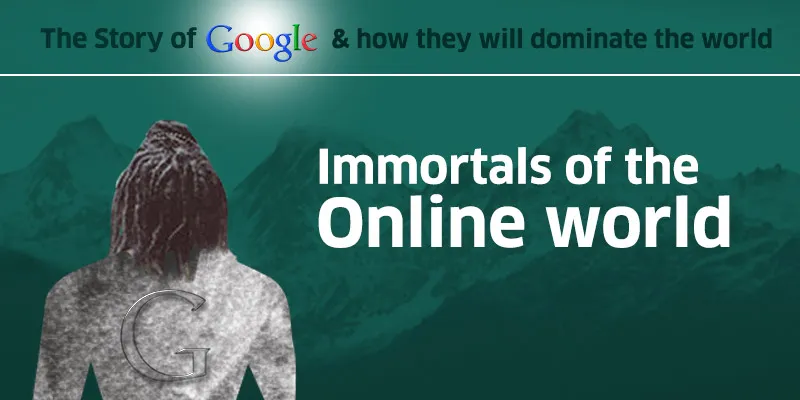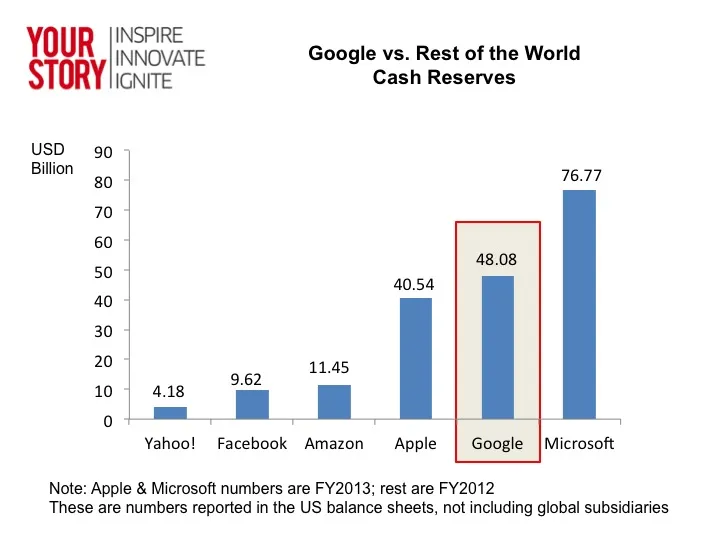Google: Mission Total World Domination (Part 1 - Online)

Google’s mission when it started can be put into four simple words - ‘Organize the world’s information’. The world has changed radically from the time it was founded till now, and the organization has come a long way since then too. Google now has a comprehensive suite of online products which are designed to garner more of the user time spent online. The major products are of course the flagship Google search, Gmail, Google+ and a host of other collaboration products. In a way, Google nearly missed the ‘social’ bus, what with the failed Orkut purchase followed by the mediocre initial versions of Google+.
However, Google has over the years learnt to stitch together all of their products into a well-knit online tapestry that can be a world beater. They have conceptualized and executed a few strategies extremely well:
- Search: Google has constantly enhanced and periodically revamped its search algorithm. At no point has it slipped in the accuracy or relevance of the search results by defocusing on it. Further, it has worked hard to prevent sites that ‘game’ the system from coming up higher in the search results.
- Gmail & Productivity Suite: Google Enterprise products and Google Apps are well adopted by large organizations and small businesses respectively. They are the product of choice with easy setup, migration and basic collaboration features.
- Google+: After a few false starts, Google+ is well on its way to being the second largest social network with over 350 million claimed active users. With deep integration with the search algorithm and Gmail, the usage of Google+ is bound to pick up.
- Android: Apple loyalists were quick to point out that the Android mobile ecosystem was nothing but a rip-off of the Apple app ecosystem. But the fact remains that Google’s open source strategy enabled wide adoption by a large array of phone / tablet manufacturers. There are over 900 million Android devices at present, giving tremendous insight into user product usage and behaviour.
Despite all of this, the cash cow on Google’s balance sheet is ‘standard PC search’ ad revenues. As per estimates these ads account for nearly 30% of Google’s overall value and about 60% of its revenues. The company’s share of the US search market has remained stagnant at about 67% as per ComScore estimates. Viewed differently, nearly 95% of all revenues are from ads. Although this cash cow has resulted in huge cash reserves in comparison to other competitors, this is a big dependency on one revenue source.

Given that Google depends so heavily on traffic and ad revenues, let us look at how these ad revenues are growing. PC search ad revenues have slowed down compared to the year before as more and more traffic moves to mobile devices. Mobile ad revenues are growing steadily and are expected to contribute 13% to the overall revenue in 2013; they are slated to increase to about 25% by 2016, but that again is not enough to move the needle for a ship the size of Google. Another problem is that mobile ads cost 50-66% as much as desktop ads and lead to a purchase only 25-33% as frequently as desktop ads do. Because of all this, the price per click has decreased for eight straight quarters, signalling a maturing market with respect to advertising.
Further, in a bid to keep users on Google properties, they have constantly tread the fine line of accepted legal and business behaviour – their scraping of data from sites such as Yelp and TripAdvisor and the subsequent government investigation; Wikipedia’s reported reduction in page views by 10% last year as more and more people get the information needed on Google search results page itself and so on.
But of course, Google knows that all of these initiatives are not enough to create lasting growth and hence a lasting organization. They have always made it clear that they want to dominate the online space. The pace at which the technology landscape is changing every day and the way software is eating the world implies that Google has to look far beyond online advertising.
So what are they doing to continue their desire to dominate the world’s information?
Check out ‘Part 2 – Beyond Online’ tomorrow!







